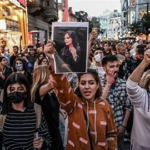
In a significant development, the Central Bureau of Investigation (CBI) has filed a chargesheet against Congress leader Jagdish Tytler in connection with the Pul Bangash Gurudwara fire case, marking a new chapter in the long-standing legal proceedings related to the 1984 anti-Sikh riots. Tytler is accused of leading a mob in the incident, resulting in the deaths of three Sikhs.
Last month, Jagdish Tytler appeared before the CBI court and willingly provided voice samples for the Pul Bangash Gurdwara case investigation. In response to the charges against him, Tytler expressed his disbelief and stated, “What have I done? If there’s evidence against me, then I’m prepared to hang myself… It wasn’t related to the 1984 riots case for which they wanted my voice (sample), but another case.”
It is worth noting that the CBI had previously given Tytler a clean chit in the case, but the investigation was reopened following a December 4, 2015 order. Over the years, Tytler has faced legal troubles regarding his alleged involvement in the 1984 anti-Sikh riots, prompting the Congress party to distance itself from him.
The case against Tytler is one of the three cases that were ordered to be reopened by the CBI in 2005 based on the recommendations of the Justice GT Nanavati Commission. The Nanavati Commission, which investigated the 1984 anti-Sikh riots, identified Tytler as one of the organizers of the violent incidents. According to official records, the riots claimed the lives of approximately 2,800 Sikhs across India, including 2,100 in Delhi, following the assassination of then-Prime Minister Indira Gandhi by her Sikh bodyguards.
The reopening of the investigation and the subsequent chargesheet against Tytler are significant steps toward addressing the long-standing demands for justice in the 1984 anti-Sikh riots case. It represents a renewed effort to hold accountable those who were allegedly involved in the horrific events that took place almost four decades ago.
The chargesheet filed by the CBI underscores the importance of ensuring a fair and impartial legal process to address the grievances of the victims and their families. As the case progresses, it will be closely watched by the affected community, human rights organizations, and the general public, with hopes for a just resolution that upholds the principles of truth, justice, and accountability.
It remains to be seen how the legal proceedings will unfold and whether the evidence presented in the chargesheet will lead to a conviction. Nevertheless, this recent development serves as a reminder of the need to confront the painful chapters of history and work towards reconciliation and healing, while ensuring that those responsible for crimes are held answerable, regardless of their stature or political affiliations.










